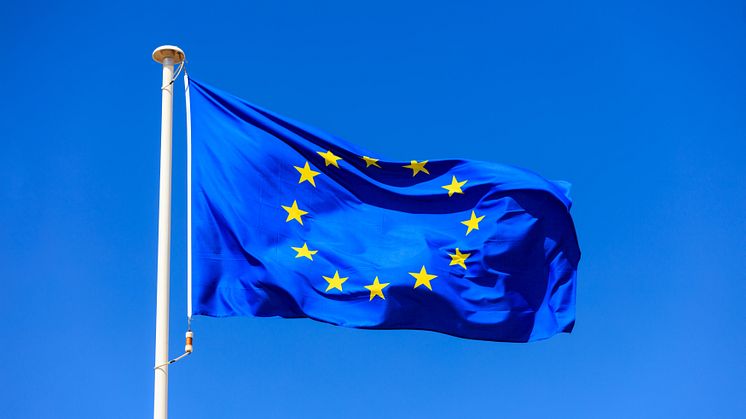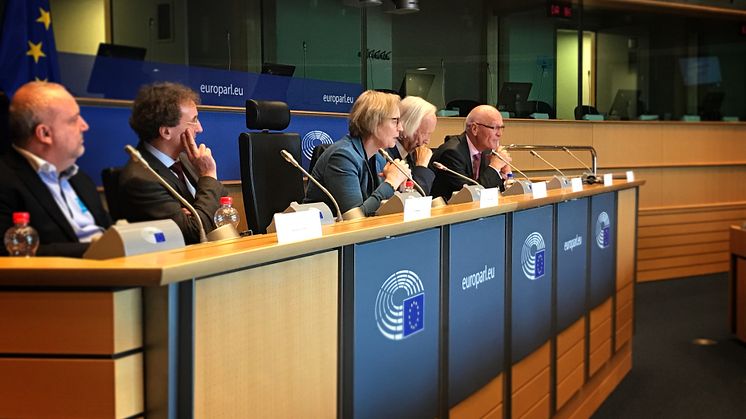
Press release -
IFRA proposes a multi-stakeholder process to address fragrance skin allergens
Following the adoption of the SCCS Opinion on Fragrance Allergens at the 15th Plenary Session on 26-27th June 2012, and the official publication today, IFRA is moving ahead with its cooperative approach.
IFRA is preparing a series of multi-stakeholder workshops and conferences involving the EU institutions, members of the consumer goods value chain and civil society groups to discuss and assess issues around some fragrance materials having the potential to cause skin allergy.
As part of its comments to the SCCS Opinion, IFRA outlined the importance of ensuring that risk assessment methodologies are well defined, well understood and commonly agreed by the scientific community at large. The final Opinion, published today, is extensive in detail and seeks to address these important issues.
To help facilitate a process to further agree solutions IFRA proposes a cooperative approach which includes three key areas:
- A series of multi-stakeholder workshops and conferences to comprehensively address the issue of definition of fragrance skin allergens. IFRA sees real benefit for the consumers, the regulators and the fragrance value chain alike in an on-going dialogue, involving all stakeholders, in which new developments in the science, the technology and the measures being implemented across the value chain could be reviewed and discussed. The first conference to be held in December 2012 in Brussels, will focus on bringing various areas of expertise together to align on the various elements required in trying to achieve an agreed definition on what constitutes a fragrance skin allergen.
- A formal process, building on this initiative, to review and revise protocols, methodologies, and the definition of criteria. This process should ideally be held in partnership with DG SANCO and involve the scientific community at large, the fragrance industry and its value chain partners. The process should also include the right of scrutiny for interested civil society groups.
- In partnership with downstream users and civil society groups, a review of best practices in responsible communication to consumers. There are new and innovative techniques available using technologies such as smart labelling, telephone hotlines, websites etc. Techniques like these could allow consumers to obtain detailed, accurate and beneficial information on fragrance materials to enable them to evaluate a product in relation to potential skin allergens and their own requirements.
Following the pre-consultation phase for this Opinion IFRA has been engaged with experts from the SCCS, the EU Commission, the scientific community and industry working towards resolving potential differences in views. IFRA firmly believes that the recent public hearing on the draft Opinion demonstrated the need for a multi-stakeholder approach as it would deliver results that consumers could rely upon to provide meaningful protection for their health with regards to potential fragrance skin allergens. IFRA also believes that it will deliver meaningful transparency and continuous certainty for industry and for regulators.
“The safety of consumers is our top priority and it is vital that we properly recognise the potency and relevance of skin allergens in order to act accordingly”, said Pierre Sivac, IFRA President.
“Our industry has a long history of pro-active measures to protect consumers from potential skin allergens and we wish to continue to develop accurate data and relevant processes to enrich our knowledge and ability to act effectively in this regard.”
Related links
Topics
Categories
The International Fragrance Association, founded in 1973, represents the interests of the fragrance industry worldwide. IFRA comprises seven multinational Regular Members and 21 national associations in four global regions representing hundreds of small and medium-sized fragrance ingredient manufacturers, as well as supporting members. Its mission is to promote the safe use of fragrance for everyone’s enjoyment.
Fragrances are a key platform technology used by consumer goods companies – for fine fragrances, personal care products, household care and more.
IFRA’s flagship safe use program, the IFRA Standards, applies safety management measures based on scientific assessment and the evaluations of an independent Expert Panel. The program is at the heart of the IFRA Code of Practice, which applies to all IFRA members globally, including members of IFRA’s 21 national associations. The Code also requires members to abide by local, national and international regulation, and to apply good manufacturing practices.




